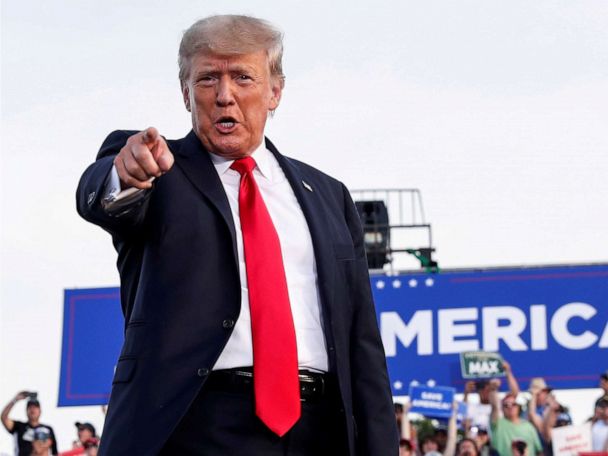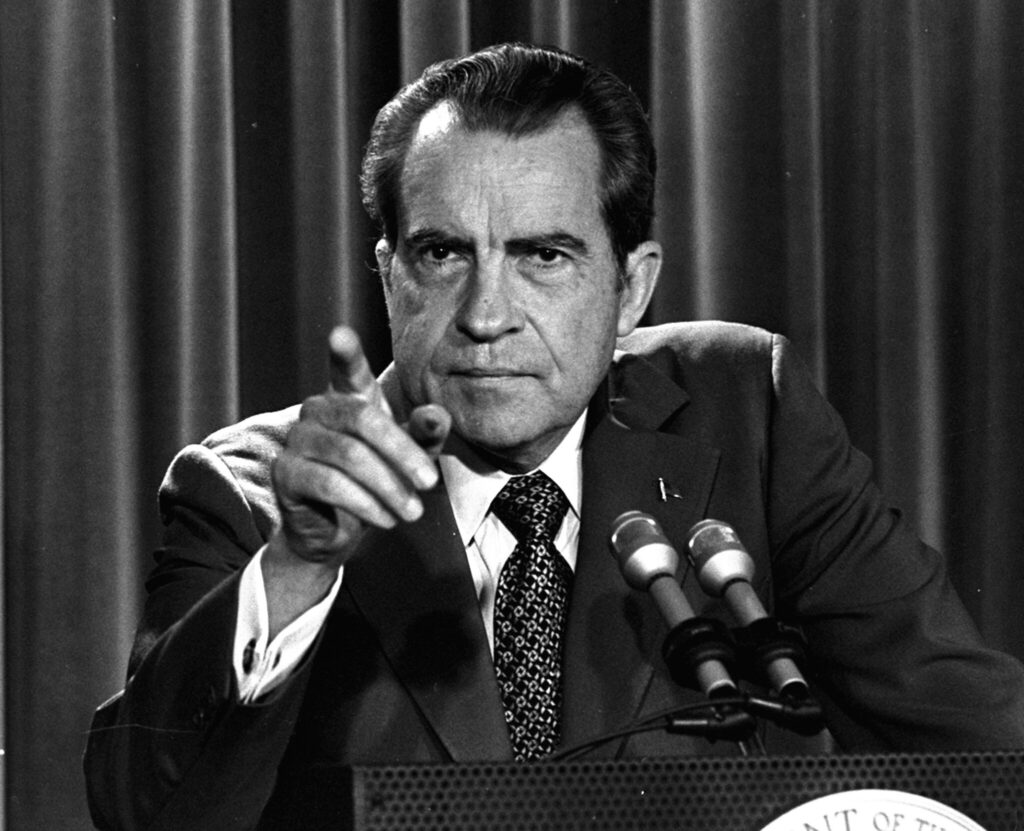In the wake of the decades-overdue indictment of Donald J. Trump there’s been a lot of talk about my previous favorite Republican criminal president, Richard “Tricky Dick” Nixon. The obvious comparison being that A: Both at one point were looking at possible jail time for their behavior, and B: Cases were/are being made that indictment and jailing would be a bad, banana republic look for the USA.
A month after Nixon resigned Gerald Ford, the epitome of your dull, institutional D.C., no-wake team player, pardoned Nixon to put an end to “our long national nightmare”. Never mind that vengeance-crazed twerps like myself and 70-80 million others were popping corn in anticipation of Dick’s televised trial. (Ford’s approval rating dropped 25% in one day as a result.)
There’s a line of thought that Nixon and Trump are comparable on the scale of malfeasance, criminality and their rot-from-within threat to democracy, and should be treated similarly. I don’t see it that way.
Without diminishing the illegal and barbaric bombing campaign Nixon ordered to deliver a “victory” in Vietnam — long, long past the point when it was obvious the North Vietnamese weren’t going to submit to anything we did — Nixon’s Watergate fiasco was very small beer compared to what Trump has engaged in. And by that I’ll let it go at, A: kowtowing to a homicidal dictator like Vladimir Putin in general, B: withholding duly-appropriated weapons to Ukraine in a mob-style shakedown to force them to invent a scandal around his election opponent and … oh yeah … C: inciting a riot to overthrow the government based on a lie about an election he plainly lost.
For all his deeply ingrained psychological failings and insecurities, Nixon was a familiar enough institutional actor. We’d seen his type before, going back to the likes of Warren G. Harding and other flagrant abusers of legal niceties. Additionally, Nixon, who was intelligent and disciplined enough to carry out the basics of the job did interact with Congress well enough to produce and handful of commendable legislation.
Not so with Trump … ever. As we’ve seen in shockingly explicit relief during his now eight year rampage through our consciousness, Trump has neither the interest or the ability to focus on legislation or anything that doesn’t primarily benefit him. Unlike Nixon and every other corrupt politician who achieved the grand stage, Trump was and is solely … a personality. A creation of pop culture, with no footing at all in serious “public service”, however you take that to mean.
As many have long said, Trump is a manifestation of a deeply anti-intellectual strain in American culture, something that has always existed, but never before at this scale or volume, thanks to the virulence of our media/social media entertainment culture. (The irony for me always being that where most think of entertainment as providing pleasure via laughter, escapist adventure or titillation, the entertainment culture that has produced Trump and the Trumpists infecting Congress, delivers instead regular, reliable doses of outrage and greivance. Good times! Bon appetit!)
The salient point here is that where it was possible to agree with Gerald Ford that enough was enough and it was time to move on, because Nixon was, well, just a standard-size politician who got a bit out over his skis, Trump is something more sinister and worrisome.
Unlike Nixon, Trump inspires a clearly violent cult of irrational partisans. Unlike Nixon, Trump still enjoys a near lockstep (public) support of fellow Republicans. (Never mind 90% are privately wishing he’d die and be gone tomorrow.) And unlike Nixon, Trump’s career-long strategy is to never concede defeat, while ignoring and disrespecting every process that tries to contain his criminality. And — this is important — unlike Nixon, Trump has already demonstrated the willingness and ability to summon mob violence to “defend” him.
Historian Jon Meacham was on TV again this morning making the point that part of any nation’s maturing process is recognizing when history doesn’t apply. That is to say recognizing unprecedented threat and responding in unprecedented ways.
The response to presidential criminality 50 years ago probably doesn’t meet the broader, louder, more violent demands of today’s conflict. So right now, that means dropping every appropriate legal hammer on a character who has shamelessly, unrepentantly abused the values of this country, no matter how much howling and mayhem he sets off.
No doubt something bad will happen … somewhere. But the country/culture will be far better off for facing up and defending its values, as opposed to begging off in the vain hope of ending this latest long, long national nightmare.



